Phalaenopsis orchids, often referred to as "moth orchids," are among the most popular and elegant indoor plants. Their captivating blooms and relatively easy care requirements make them a favorite for both novice and experienced gardeners. In this blog, we’ll dive deep into how to grow and care for these stunning orchids, ensuring they thrive in your home.

Why Choose Phalaenopsis Orchids?
Phalaenopsis orchids are prized for their long-lasting flowers, which can bloom for months under ideal conditions. They are available in various colors, including white, pink, yellow, and purple, adding a touch of sophistication to any space. Additionally, their adaptability to indoor environments makes them a perfect choice for plant enthusiasts.
Step-by-Step Care Guide
1. Potting: The Right Container Matters
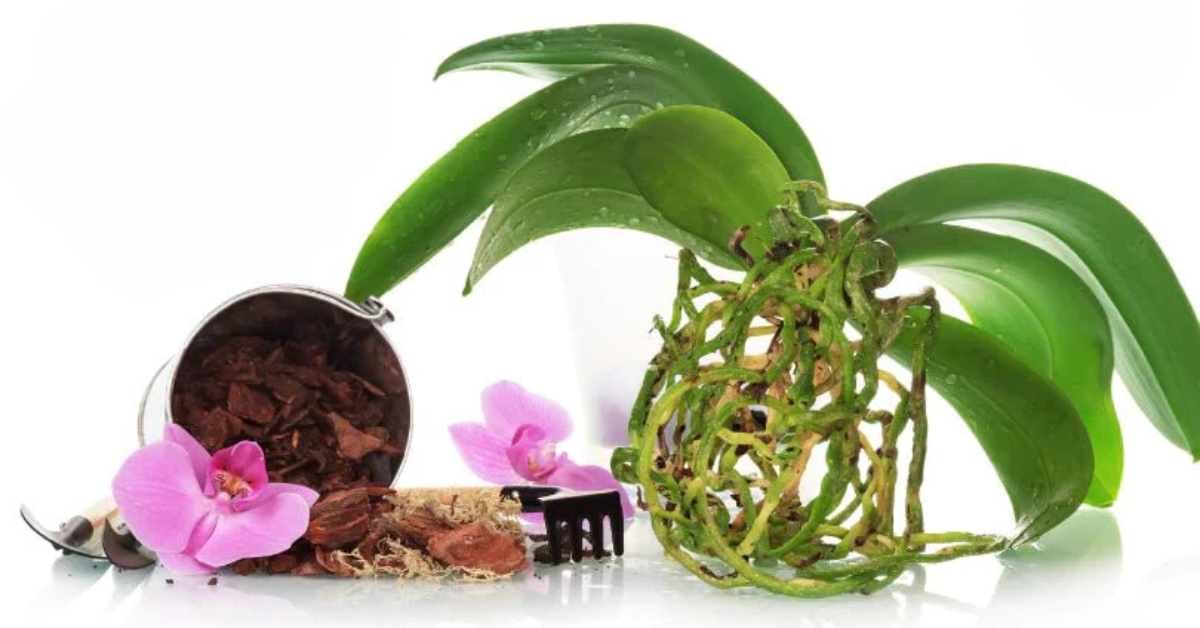
Phalaenopsis orchids require pots with proper drainage to prevent root rot. Use specialized orchid pots with slots at the bottom to allow airflow and water drainage. The slots mimic the natural environment of orchids, which grow on trees in tropical climates.
Pro Tip: Transparent pots are ideal as they allow you to monitor root health. Healthy roots should appear green when moist and silvery when dry.
2. Growing Media: Mimic Their Natural Habitat
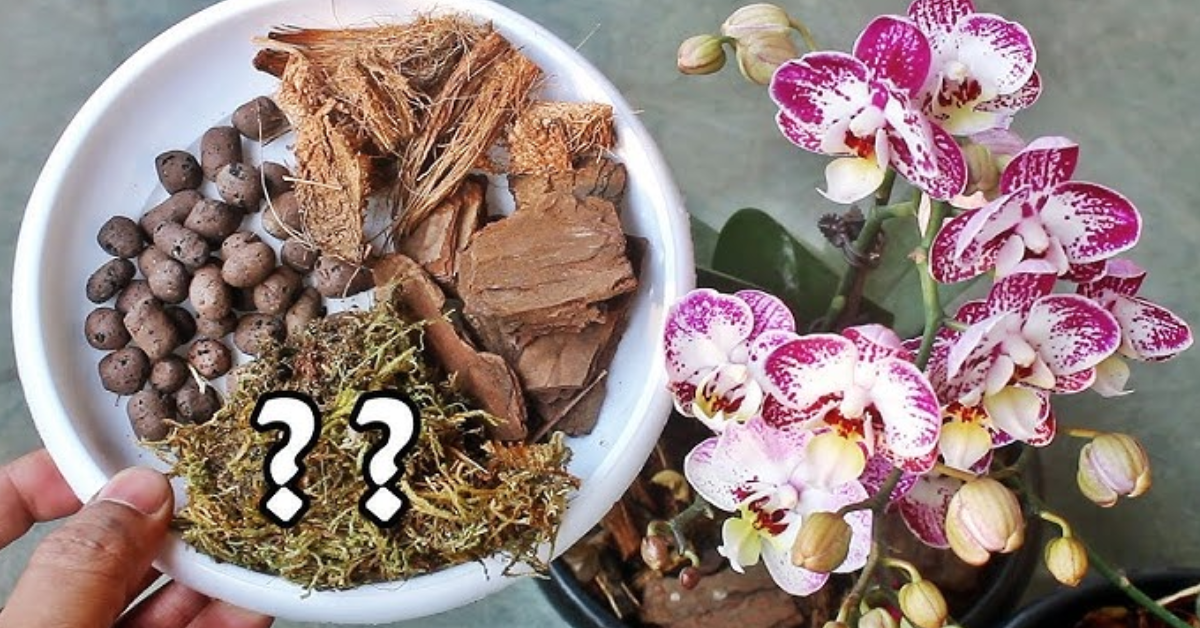
Unlike traditional houseplants, Phalaenopsis orchids don’t grow in soil. Instead, use media like charcoal, treated coco chips, or bark. These materials provide excellent aeration and mimic the conditions of tree bark where orchids naturally thrive.
Why This Works: Orchids are epiphytes, meaning they grow on other plants rather than in soil. The right media ensures proper drainage and prevents waterlogging.
3. Watering: Striking the Right Balance
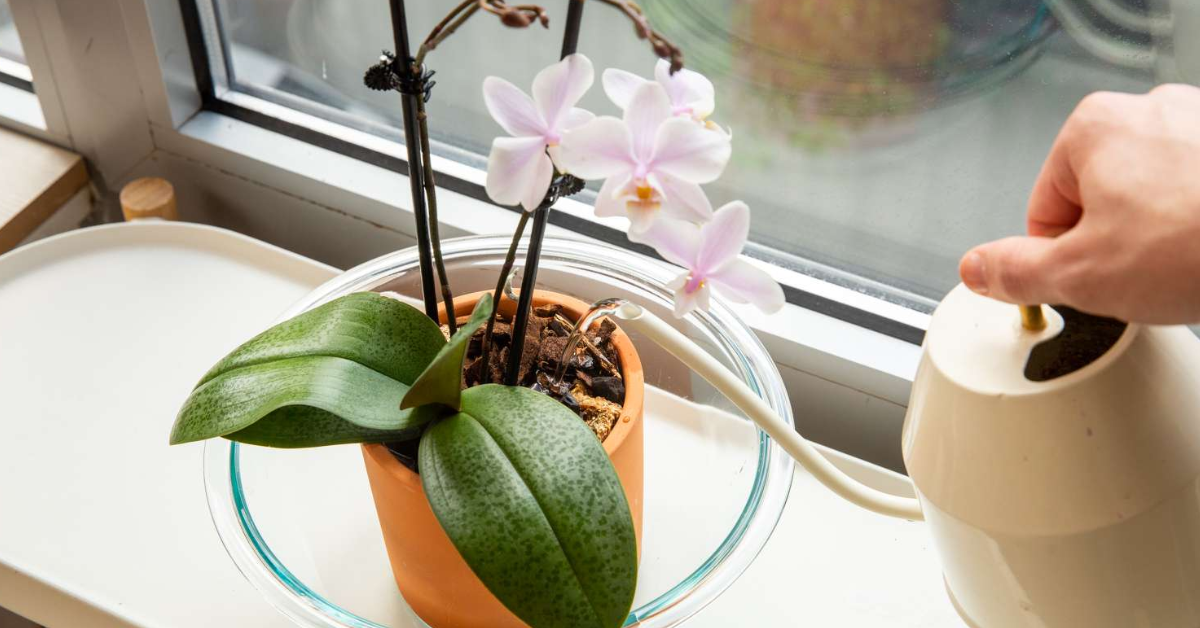
Watering is crucial for orchid health. Water your plant on alternate days or when the top inch of the media feels dry. Avoid overwatering as it can lead to root rot.
Best Practice: Use lukewarm water and avoid letting water sit in the crown of the plant (the area where leaves meet). This can cause crown rot.
4. Fertilizing: Feed Your Orchid Regularly
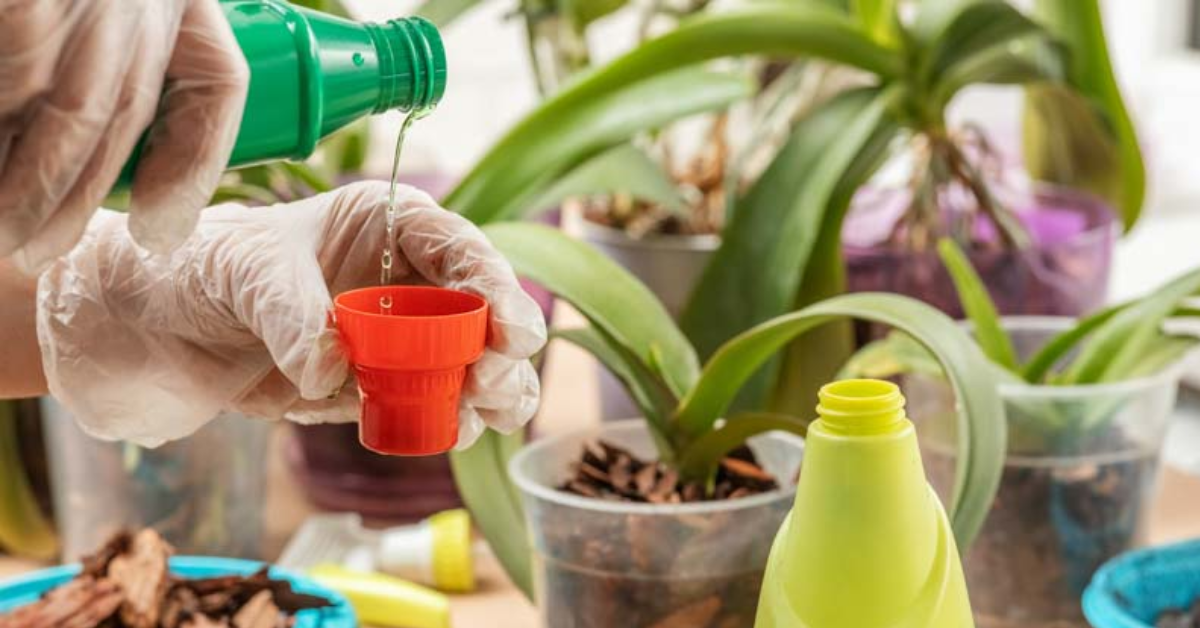
Use a water-soluble fertilizer with an NPK ratio of 19-19-19. Mix half a teaspoon in one liter of water and apply weekly by thoroughly drenching the media and spraying the plant.
Why Fertilizing Matters: Orchids need nutrients to produce their stunning blooms. Regular fertilization ensures healthy growth and vibrant flowers.
5. Light: Indirect Bright Sunlight
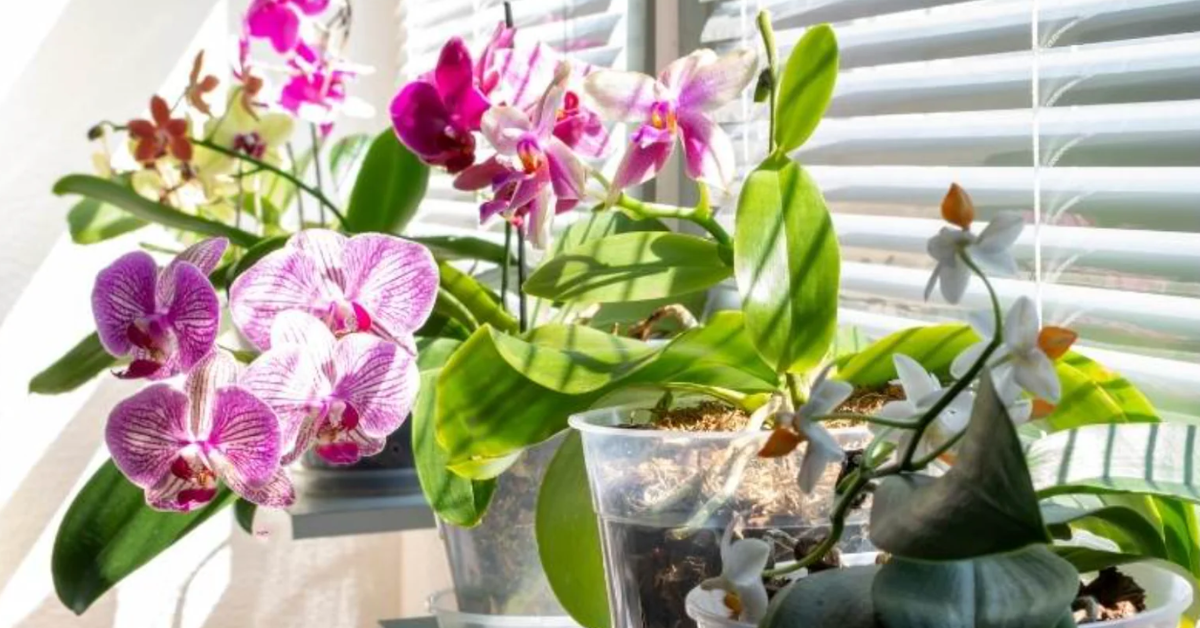
Phalaenopsis orchids thrive in bright but indirect sunlight. Place them near an east-facing window or use sheer curtains to diffuse direct sunlight.
Warning: Direct sunlight can scorch the leaves and cause damage.
6. Humidity: Keep It Moist
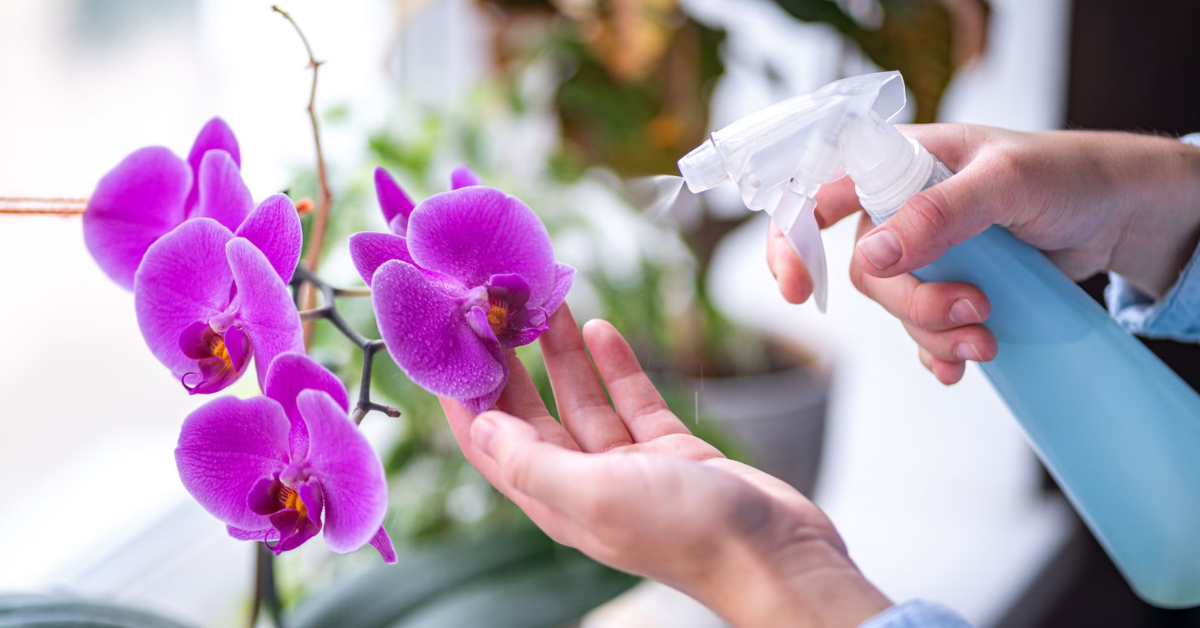
These tropical plants love humidity! Mist your orchid daily with water once or twice to maintain moisture levels around the plant.
Humidity Tip: You can also use a humidity tray by placing pebbles in a shallow dish filled with water under the pot. This creates a humid microenvironment around your orchid.
Common Problems and Solutions
1. Yellow Leaves
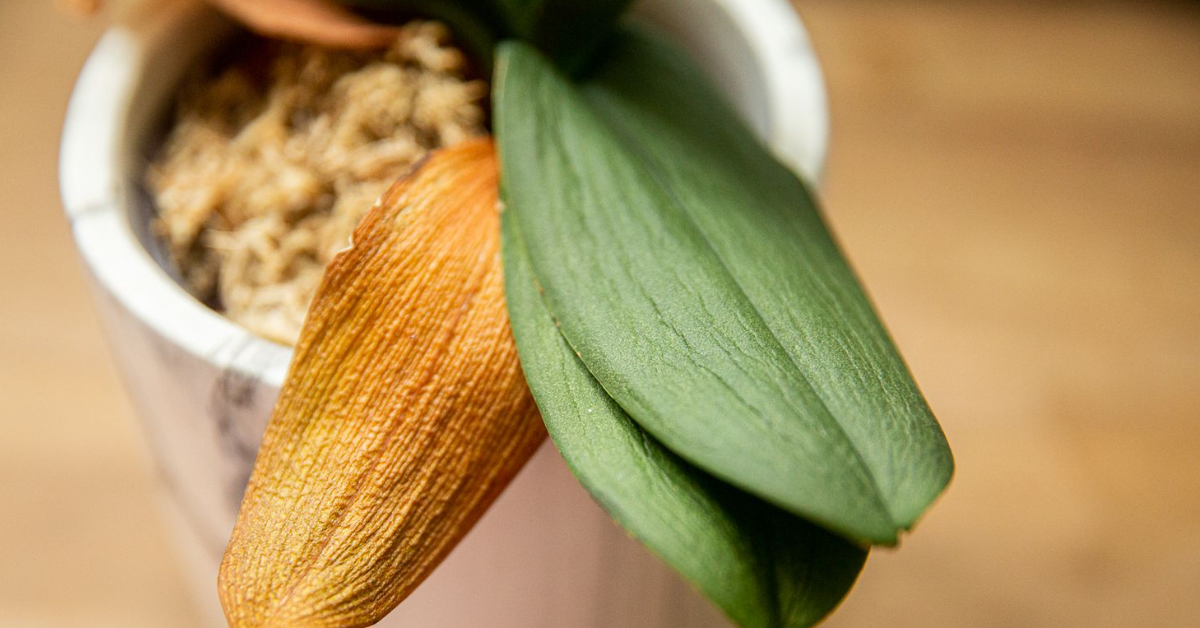
Yellowing leaves often indicate overwatering or excessive direct sunlight exposure. Adjust watering frequency and relocate your orchid to a more shaded spot.
2. Drooping Flowers
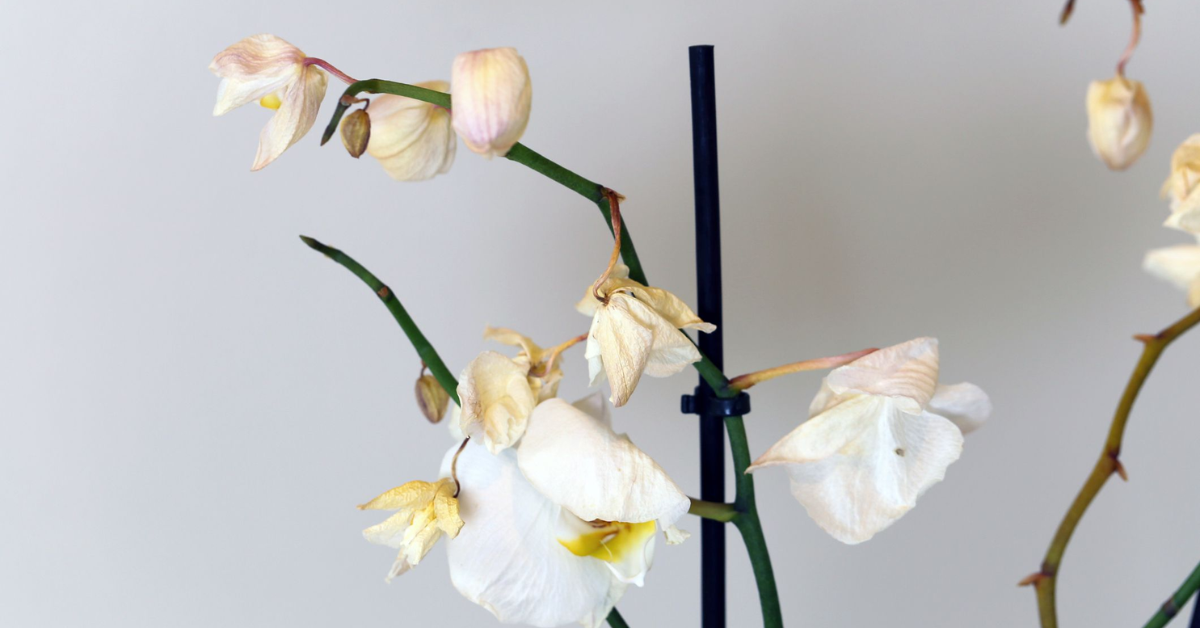
Drooping flowers might signal insufficient watering or low humidity levels. Ensure consistent watering and misting practices.
3. Root Rot
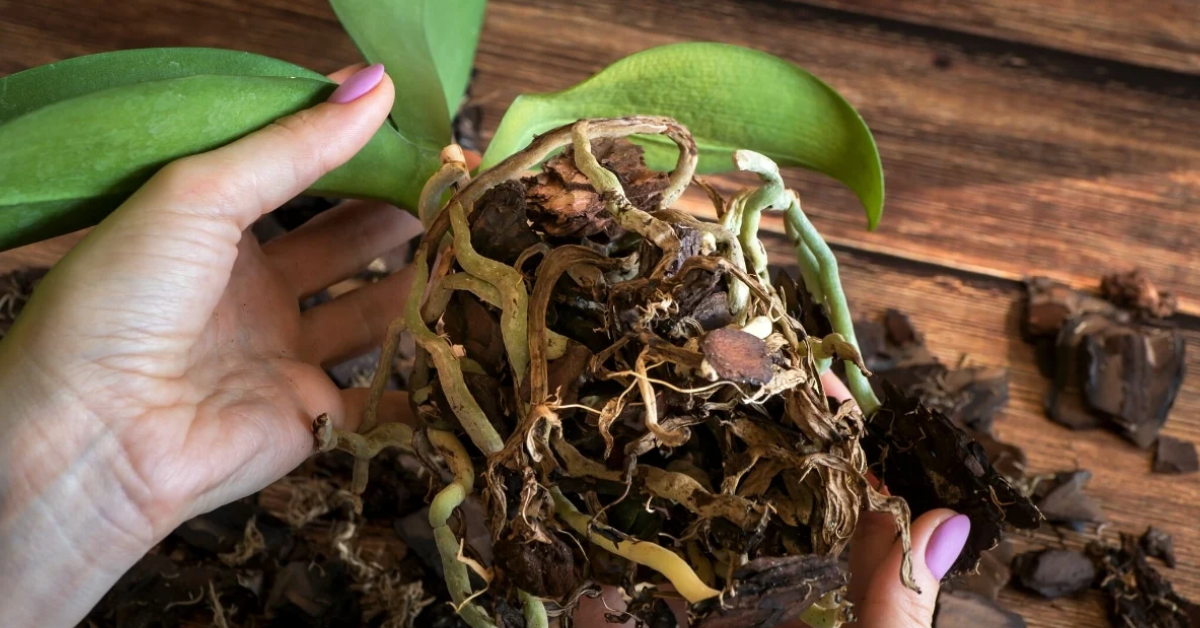
Root rot occurs due to poor drainage or overwatering. If detected early, trim affected roots and repot your orchid in fresh media.
Products
Phalaenopsis Orchids : Shop Now
Fertilizers : Shop Now
Pots : Shop Now
Follow Us
 |
 |
 |



